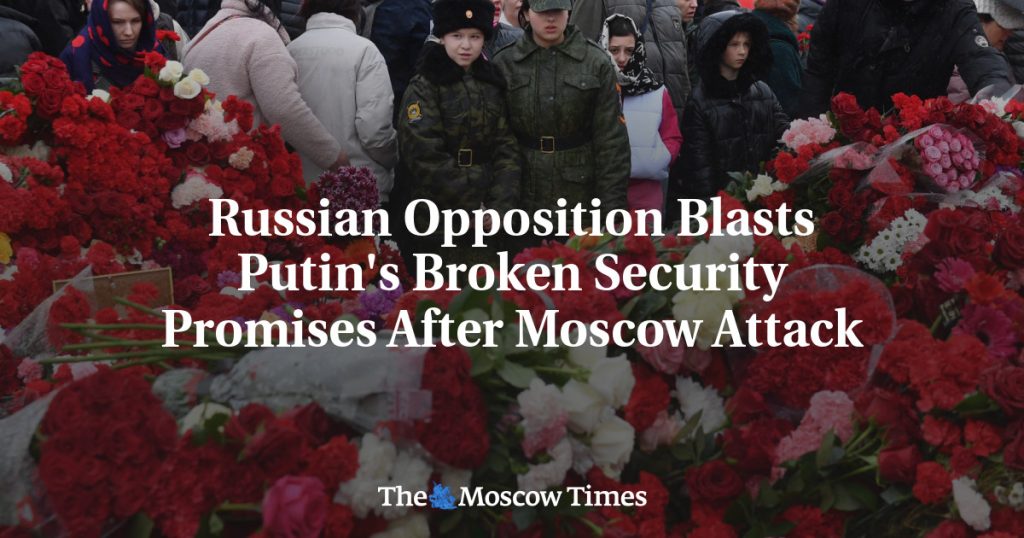Russia’s opposition has criticized Vladimir Putin’s security promise in the aftermath of the Moscow concert hall attack, accusing the country’s intelligence agencies of focusing more on targeting Kremlin critics than on preventing actual threats. The failure of the security apparatus to thwart the deadliest attack in Russia in two decades has raised questions about Putin’s ability to deliver on his promise of providing security, especially given his background as a former Soviet spy and head of the FSB security agency. Despite previous terrorist attacks during his presidency, Putin has justified the increasing crackdown on civil liberties and opposition as necessary to combat the terrorist threat.
Following the concert hall attack, Islamic State (IS) claimed responsibility, making it the most deadly attack in Europe attributed to IS. Russian officials have yet to comment on this claim, and they expect the death toll to rise further. The United States had issued a warning just two weeks before the attack, stating that extremists were planning to target large gatherings in Moscow, including concerts. Putin criticized this warning as “provocative” and addressed the FSB’s focus on anti-terrorism efforts related to Ukraine, emphasizing the agency’s role in hunting down pro-Ukrainian sabotage groups.
Critics of Putin have condemned his approach to transforming Russia’s security services into tools for spying and harassing opposition figures, leaving the country vulnerable to real threats. Former lawmaker Dmitry Gudkov and exiled oil tycoon Mikhail Khodorkovsky have both highlighted the perceived “impotence” of the Kremlin’s security apparatus in the face of the attack. The Kremlin has been accused of relying on the intelligence and security services to crack down on political opponents under the guise of combating terrorism, with a significant increase in terror-related criminal cases in recent years.
The FSB’s tactics have come under scrutiny, with cases of fictitious terrorism allegations and suspected links to poisonings of Kremlin critics and former spies. Navalny’s associates have faced numerous criminal cases in the past five years, and former chief of staff Leonid Volkov has criticized the FSB for fabricating non-existent terrorists instead of focusing on real threats. The agency’s involvement in alleged poisonings at home and abroad has raised concerns about its effectiveness in preventing terrorist attacks. Volkov’s experience of being attacked in Lithuania further underscores the level of intimidation faced by Putin’s opponents.
The ongoing crackdown on civil liberties and opposition under Putin’s leadership has created a climate of fear and intimidation, leaving many to question the priorities of the country’s security services. The failure to prevent the Moscow concert hall attack has exposed vulnerabilities in Russia’s security apparatus and raised doubts about the effectiveness of Putin’s approach to combating terrorism. The opposition’s criticism of the security agencies’ focus on targeting political opponents over addressing real threats reflects broader concerns about the erosion of rights and freedoms in Russia under Putin’s rule. As the country grapples with the aftermath of the attack, there is a growing sense of disillusionment with the government’s handling of security issues and the impact of its repressive policies.


